Discover the Fall 2020 program of IID (Institute Intelligence and Data) webinars at Université Laval!
From September 4 to December 4, 2020, eight webinars will be presented by IID (Institute Intelligence and Data) at Université Laval as part of the Institute’s regular Fall 2020 program. Organized by our Scientific and Ethics Officer, Schallum Pierre, this series of conferences offers presentations, open to everyone, devoted to issues related to artificial intelligence and data science – from ethical or legal aspects to programming approaches or the fundamental principles of AI, and more!

Everything you need to know about the Professional Master’s degree in Computer Science – AI (and its internships)
September 4, 2020, 12 – 1 pm
with Camille Besse, Institute Intelligence and Data
In this webinar, the curriculum and scope of a Professional Master’s degree in Computer Science specializing in Artificial Intelligence, the desirable prerequisites, courses and possible future career paths will be presented. For potential industrial partners, the calendar of internship proposals will be described, as well as the possibility of offering an internship, even without the in-house expertise of an AI or data specialist.
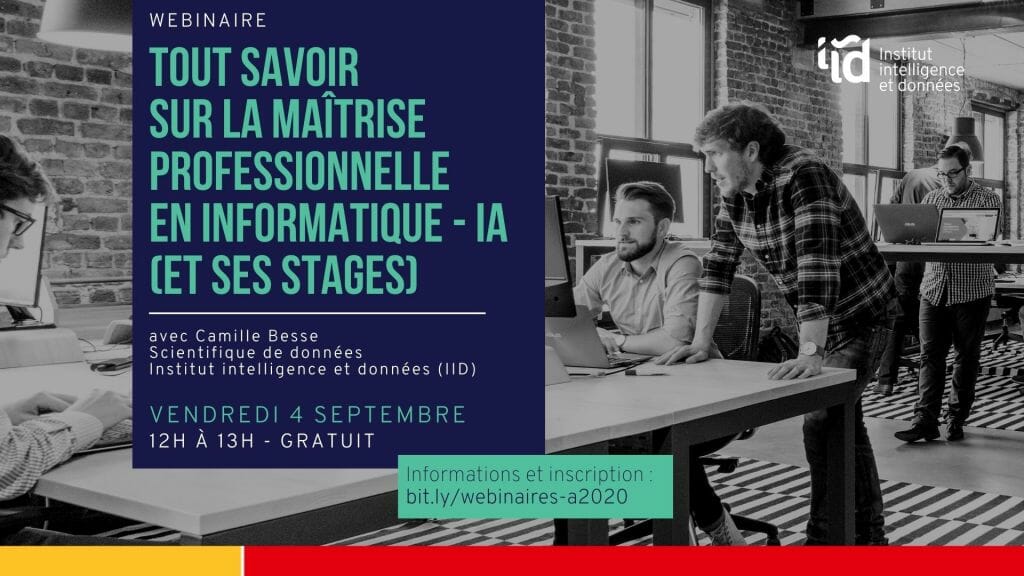
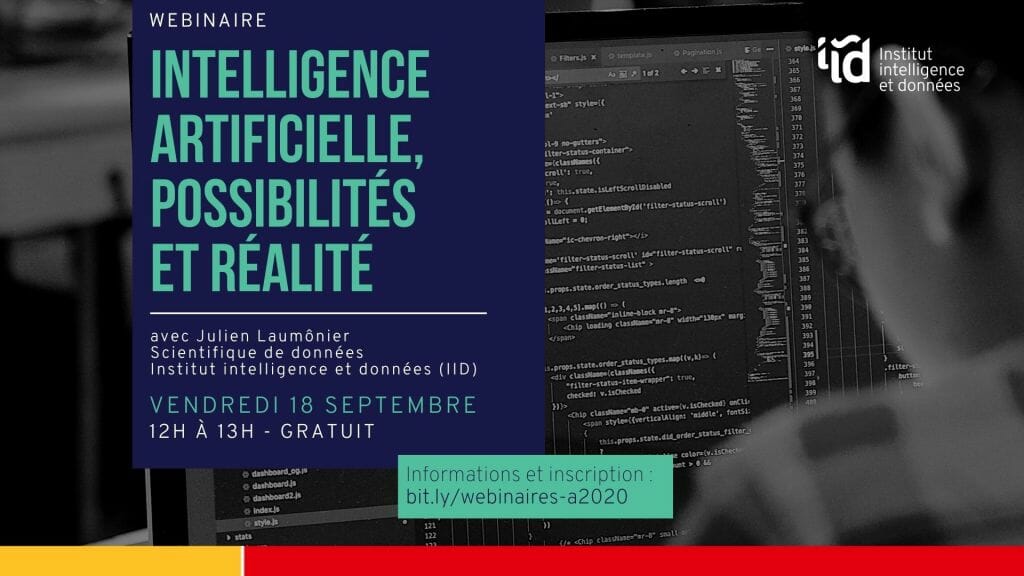
Artificial Intelligence, possibilities and reality
September 18, 2020, 12 – 1 pm
with Julien Laumônier, Institute Intelligence and Data
For several years now, artificial intelligence has experienced a growing boom for a large number of uses and applications in everyday life. However, its foundations remain difficult to grasp and, as a consequence, its contributions and its limits are not easy to anticipate. During this presentation, certain key concepts of artificial intelligence will be demystified, in order to provide a better understanding of how AI works, its possibilities and its limits.
Data ethics, from a research perspective
October 2, 2020, 12 – 1 pm
with Schallum Pierre, Institute Intelligence and Data
Ethics are now more essential than ever for any research involving “human” data. This webinar will present the ethics objectives in the field of artificial intelligence research and data valorization. The role of regulations and the issues concerning free, informed and continuous consent in the context of big data, will be addressed.
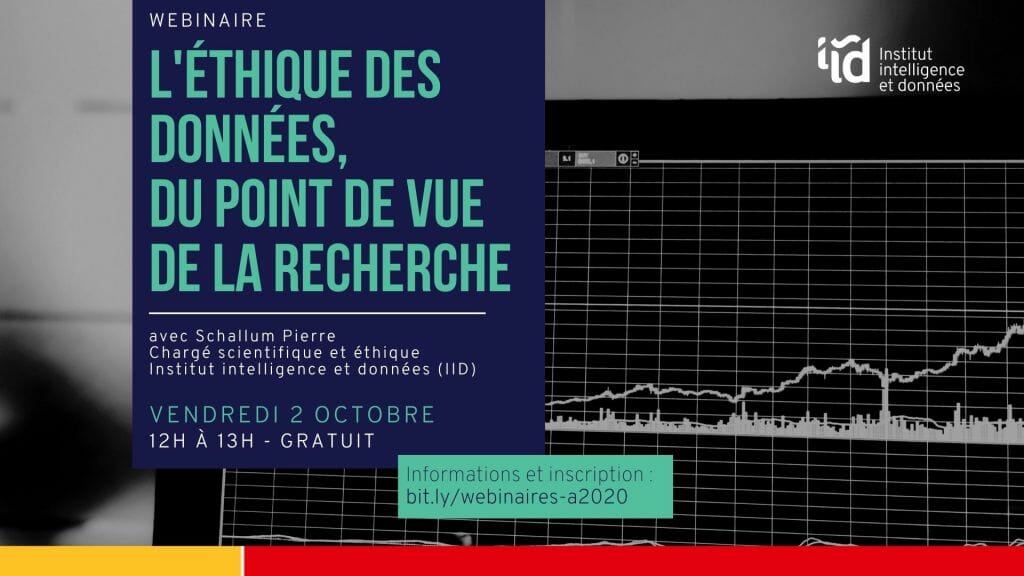
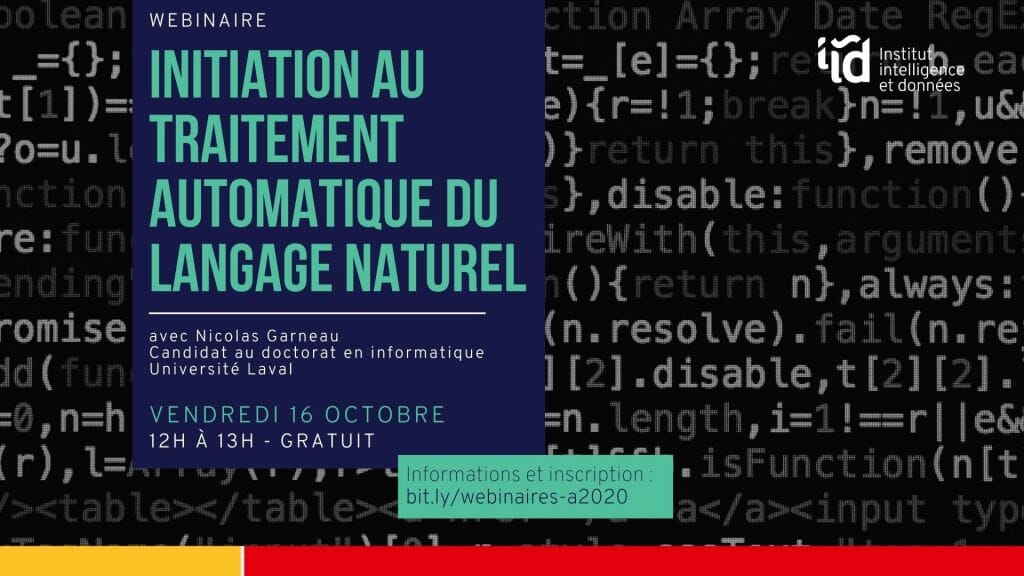
Introduction to automatic natural language processing
October 16, 2020, 12 – 1 pm
with Nicolas Garneau, Ph.D. student in Computer Science
This webinar presents a brief introduction to automatic Natural Language Processing or NLP. The webinar will focus on the specific case of text generation, writing assistance and the connection with the era of Fake News. In order to fully understand the different concepts presented, two components essential to textual generation will be addressed, namely word embedding and language models.
Reproducibility in machine learning
October 30, 2020, 12 – 1 pm
with David Beauchemin, Ph.D. student in Computer Science
This webinar presents a brief introduction to “repeatable research” in machine learning. To make good use of research results, we must learn to gradually adopt new working methods in order to gain in productivity. No prior knowledge is required.
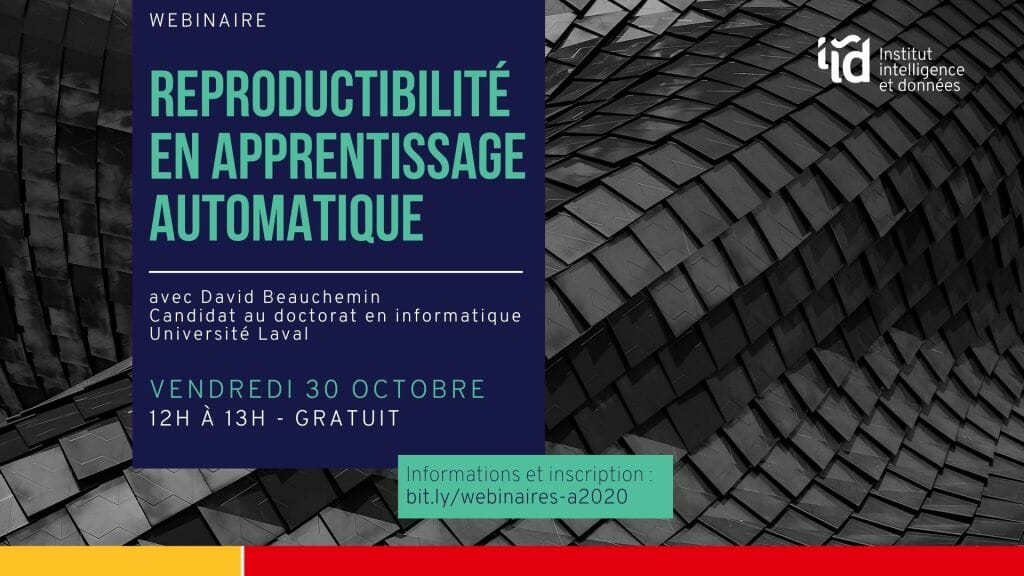
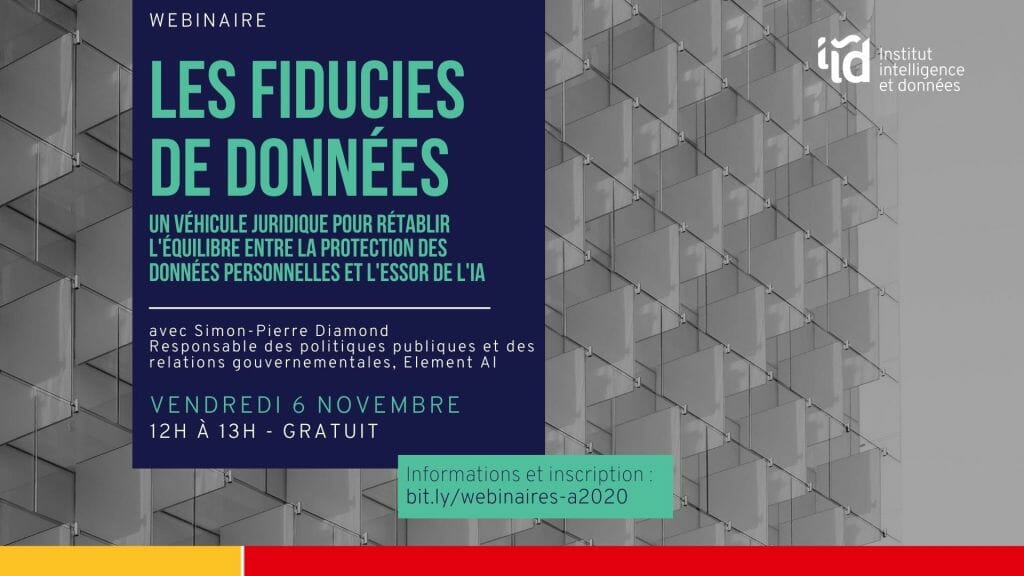
Data trusts
November 6, 2020, 12 – 1 pm
with Simon-Pierre Diamond, Element AI
At the dawn of the boom of AI solutions within our society, we may be concerned about the precariousness of our legal framework for the management of personal data. This presentation highlights the shortcomings of the consent model that governs the use of our data and proposes the concept of data trusts as a new legal vehicle to find the proper balance between the protection of personal data and the rise of AI.
“-Omics” sciences and machine learning
November 27, 2020, 12 – 1 pm
with Jacques Corbeil, Faculty of Medicine, Université Laval
A few examples where machine learning has allowed research teams to validate and discover interesting associations for cases pertaining to human health will be presented during this webinar. Note that Dr. Corbeil focuses on algorithms that generate parsimonious and interpretable models.
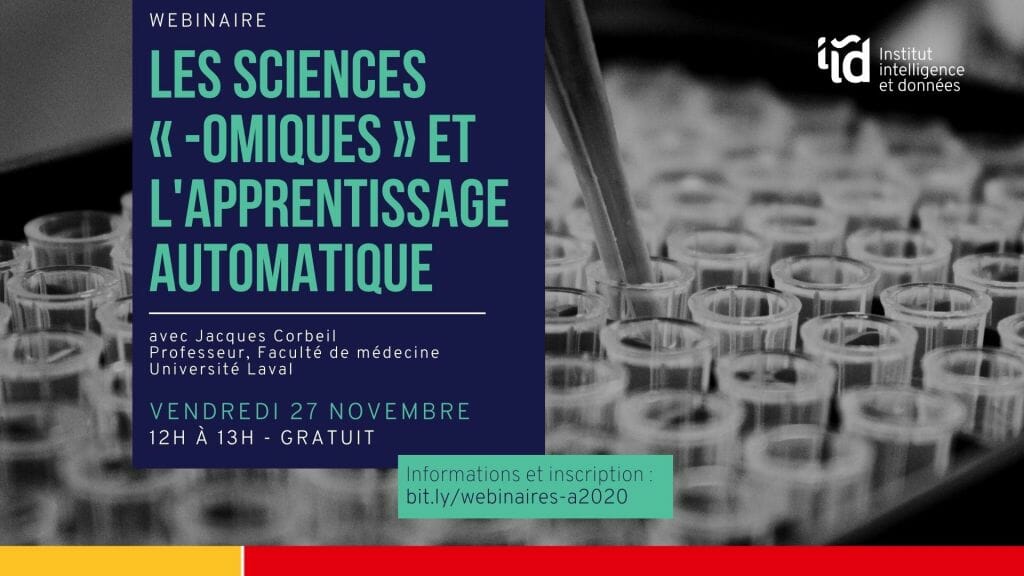
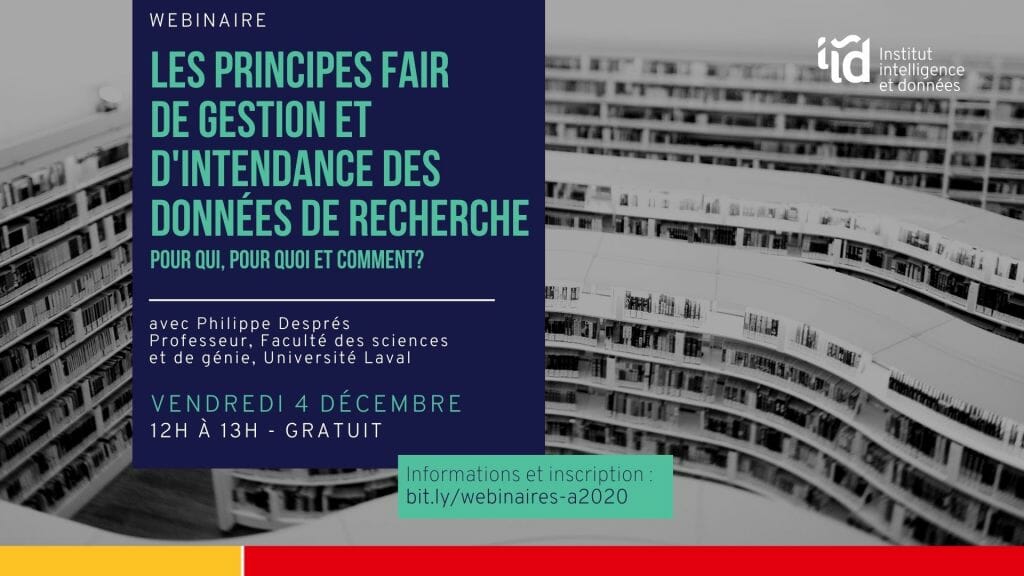
The FAIR principles of research data management and stewardship
December 4, 2020, 12 – 1 pm
with Philippe Després, Faculty of Science and Engineering, Université Laval
Until recently, little attention has been paid to what happens to data after a project is completed. Thus, colossal amounts of data are wasted every year. The federal government has adopted a new policy on the management of research data that places new obligations on researchers and their institutions with respect to data management and stewardship. These obligations will be reviewed, as well as the manner in which they can be put into practice.
Let’s keep in touch!
Would you like to be informed about IID news and activities? Subscribe now to our monthly newsletter.